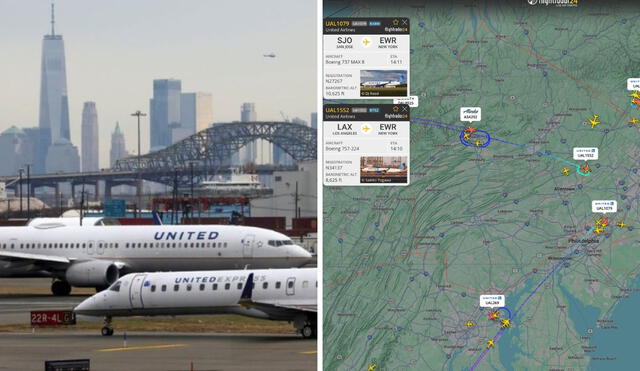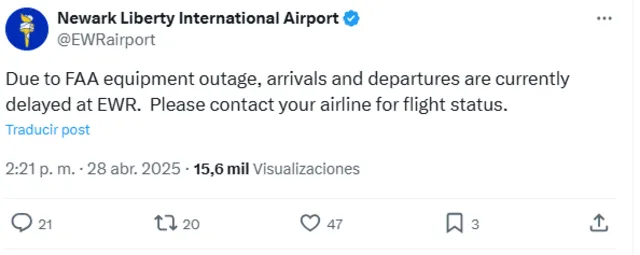FAA equipment failure and staffing shortage cause Major delays at Newark airport
Newark Airport disruptions highlight the urgent need for FAA reforms and better infrastructure. With staffing shortages and equipment failures causing delays, passengers are advised to stay updated as efforts to restore normal operations continue.

Newark Liberty International Airport experienced significant flight disruptions due to a combination of equipment malfunctions and air traffic controller shortages. The Federal Aviation Administration (FAA) reported that telecommunications and radar issues at the Philadelphia Terminal Radar Approach Control (TRACON), which manages Newark's airspace, led to the slowdown of arrivals and departures. Although the equipment problems were resolved, staffing shortages at Philadelphia TRACON continued to impact flight operations.
United Airlines, the primary carrier at Newark, diverted over 35 flights to alternate airports and delayed numerous others at their departure points, creating a backlog. The airline anticipated cancellations and delays for the remainder of the day due to the ongoing FAA staffing issues. To assist affected passengers, United issued a travel waiver, allowing customers flexibility in managing their travel plans.
FAA staffing shortages and technical glitches cause Major delays at Newark airport
The root cause of the disruptions was traced to equipment failures at Philadelphia TRACON, which oversees aircraft movements in and out of Newark. While the technical issues were addressed, the facility faced a shortage of air traffic controllers, further exacerbating the situation. The FAA did not provide specific reasons for the staffing shortfall but acknowledged its impact on flight operations.
The combination of technical glitches and staffing shortages highlights the vulnerabilities in the air traffic control system, particularly in high-traffic areas like Newark. The FAA's ongoing challenges in recruiting and retaining qualified personnel have been a concern, with efforts underway to address these issues. In the meantime, travelers are advised to check with airlines for the latest updates on flight schedules.
FAA under pressure after Newark airport disruptions expose systemic issues
This incident underscores the importance of robust contingency planning and infrastructure investment to ensure the resilience of the nation's air travel system. As air traffic continues to grow, addressing systemic issues within the FAA and related agencies becomes increasingly critical to prevent similar disruptions in the future.

Newark Liberty International Airport addresses ongoing disruptions caused by FAA staffing shortages and equipment failures, urging passengers to stay informed and check flight updates. Photo: Newark Airport X account
Passengers affected by the delays and cancellations at Newark are encouraged to utilize airline-provided resources and stay informed through official channels. The FAA and airlines are working to mitigate the impact and restore normal operations as swiftly as possible. Continued collaboration between federal agencies and airlines is essential to enhance the reliability of air travel services.













